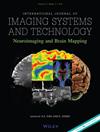摘要
在现代医学成像中,虽然近年来超分辨率技术在核磁共振成像中的应用取得了进展,但目前的应用仍不能满足实际需要。例如,对于特定病理或生理条件下的核磁共振成像图像,现有的超分辨率技术在处理噪声和还原细节方面仍然缺乏有效性。而在处理脑白质纤维束等组织结构复杂的图像时,现有的超分辨率技术往往无法准确还原图像细节,导致结构失真。为了解决这些缺陷,我们在本研究中提出了一种专为磁共振成像(MRI)定制的先进超分辨率(SR)重建框架。我们的方法利用了去噪扩散概率模型(DDPM)和交叉注意(CrossAttention),这是一种先进的技术,因其能够在保持数据准确性的同时充分利用可用条件,从而实现高质量的图像复原而闻名。通过结合复杂的先验和创新的网络架构,我们的方法明显优于传统的 SR 技术,尤其是在保留精细解剖细节和提高整体图像质量方面。通过在各种磁共振成像数据集上进行广泛的实验,对所提出的框架进行了严格的验证,证明了它在各种情况下的鲁棒性和有效性。此外,我们还对结构相似性指数(SSIM)、峰值信噪比(PSNR)、归一化均方误差(NMSE)和通用质量指数(UQI)等性能指标进行了全面分析,以强调我们基于 DDPM 的方法的优越性。这项工作不仅推动了核磁共振成像 SR 技术的发展,还为医学成像及相关领域的更广泛应用铺平了道路。In modern medical imaging, although there have been advances in the application of super-resolution technology to MRI in recent years, current applications still cannot meet practical needs. For example, for MRI images under specific pathological or physiological conditions, the existing super-resolution technology still lacks effectiveness in processing noise and restoring details. And when processing images with complex organizational structures, such as white matter fiber bundles in the brain, existing super-resolution techniques often fail to accurately restore image details, resulting in structural distortion. To address these deficiencies, we propose in this study an advanced super-resolution (SR) reconstruction framework tailored specifically for magnetic resonance imaging (MRI). Our approach makes use of the Denoising Diffusion Probabilistic Model (DDPM) and CrossAttention, an advanced technique known for its ability to maintain data accuracy while making the most of available conditions, leading to high-quality image restoration. By incorporating sophisticated priors and innovative network architecture, our method significantly outperforms traditional SR techniques, particularly in preserving fine anatomical details and enhancing overall image quality. The proposed framework undergoes rigorous validation through extensive experiments on diverse MRI datasets, demonstrating its robustness and effectiveness in various scenarios. Furthermore, we provide a comprehensive analysis of the performance metrics, including structural similarity index (SSIM), peak signal-to-noise ratio (PSNR), Normalized Mean Squared Error (NMSE), and Universal Quality Index (UQI), to underscore the superiority of our DDPM-based approach. This work not only contributes to advancing the state-of-the-art in MRI SR but also paves the way for broader applications in medical imaging and related fields.

 求助内容:
求助内容: 应助结果提醒方式:
应助结果提醒方式:


